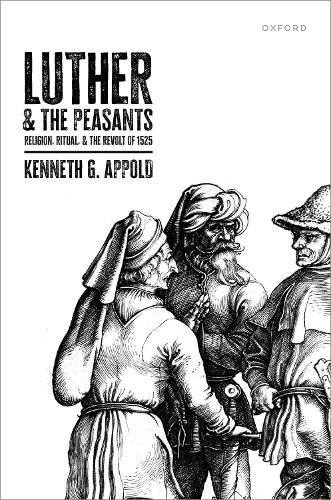Readings Newsletter
Become a Readings Member to make your shopping experience even easier.
Sign in or sign up for free!
You’re not far away from qualifying for FREE standard shipping within Australia
You’ve qualified for FREE standard shipping within Australia
The cart is loading…






The German Peasants' Revolts of 1525 were a defining moment both for the Protestant Reformation and the history of European culture. But while the conflicts are well-studied, they are typically analyzed today from political and socioeconomic perspectives, whereas the protagonists themselves framed them in religious and theological terms. Luther and the Peasants takes these perspectives seriously to offer a novel and timely reinterpretation of the uprisings. A detailed examination of peasants' religious lives reveals commitments to peace, social harmony, and the environment that came into conflict with spiritual priorities of the Protestant Reformation, notably with those of Martin Luther. Drawing on the peasants' own documents, such as the famous manifesto The Twelve Articles, the book provides a thorough re-examination their actions, including their negotiations with lords and their organization into bands and Christian brotherhoods, and a fresh analysis of their behavior in battle. This ritual reconstruction makes peasants' statements and behaviors historiographically legible for the first time, effectively giving voice to an illiterate rural people, and offers new ways of reading Luther's 1525 writings on peasants, which are among his most challenging works. In this context, the 1525 conflict between Luther and the peasants comes to light as the collision of two different religious worlds, each incomprehensible to the other. This, in turn, reveals the important role played by religion in a defining moment of early modern European history.
$9.00 standard shipping within Australia
FREE standard shipping within Australia for orders over $100.00
Express & International shipping calculated at checkout
Stock availability can be subject to change without notice. We recommend calling the shop or contacting our online team to check availability of low stock items. Please see our Shopping Online page for more details.
The German Peasants' Revolts of 1525 were a defining moment both for the Protestant Reformation and the history of European culture. But while the conflicts are well-studied, they are typically analyzed today from political and socioeconomic perspectives, whereas the protagonists themselves framed them in religious and theological terms. Luther and the Peasants takes these perspectives seriously to offer a novel and timely reinterpretation of the uprisings. A detailed examination of peasants' religious lives reveals commitments to peace, social harmony, and the environment that came into conflict with spiritual priorities of the Protestant Reformation, notably with those of Martin Luther. Drawing on the peasants' own documents, such as the famous manifesto The Twelve Articles, the book provides a thorough re-examination their actions, including their negotiations with lords and their organization into bands and Christian brotherhoods, and a fresh analysis of their behavior in battle. This ritual reconstruction makes peasants' statements and behaviors historiographically legible for the first time, effectively giving voice to an illiterate rural people, and offers new ways of reading Luther's 1525 writings on peasants, which are among his most challenging works. In this context, the 1525 conflict between Luther and the peasants comes to light as the collision of two different religious worlds, each incomprehensible to the other. This, in turn, reveals the important role played by religion in a defining moment of early modern European history.